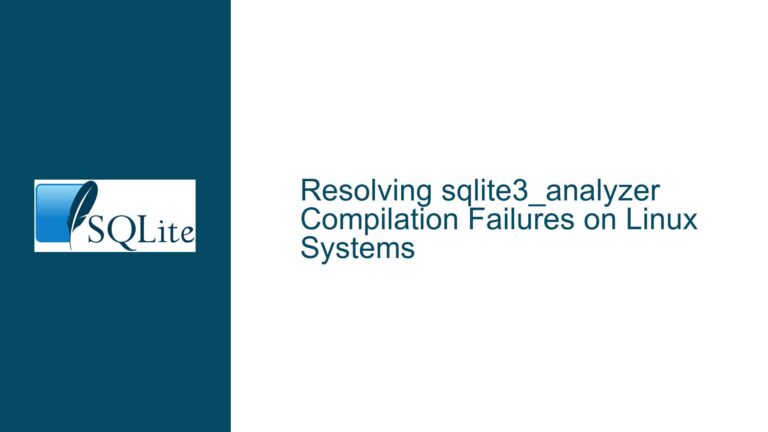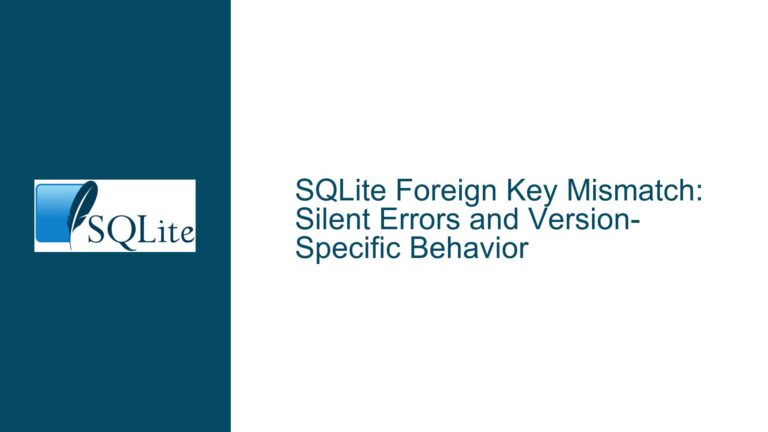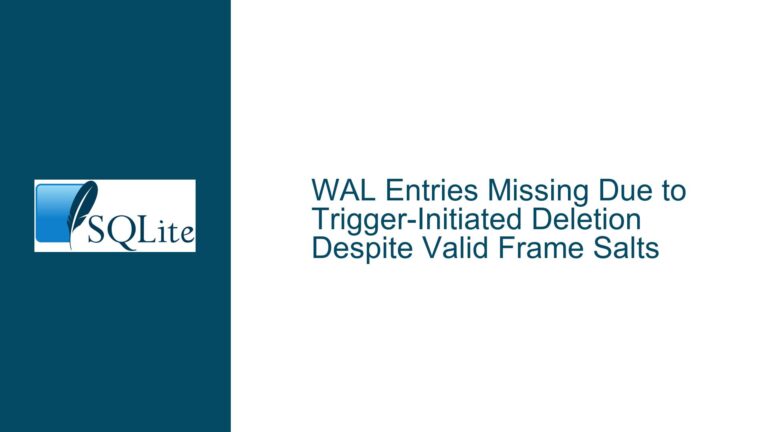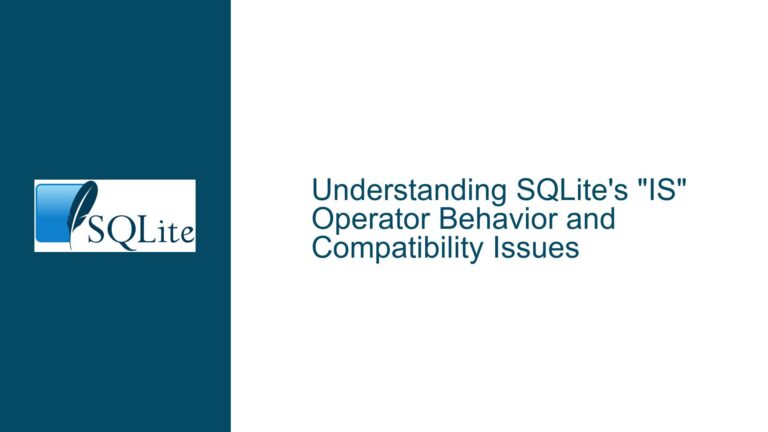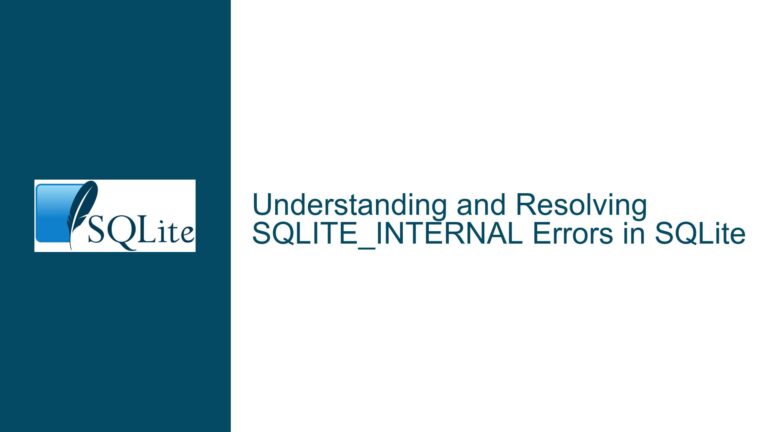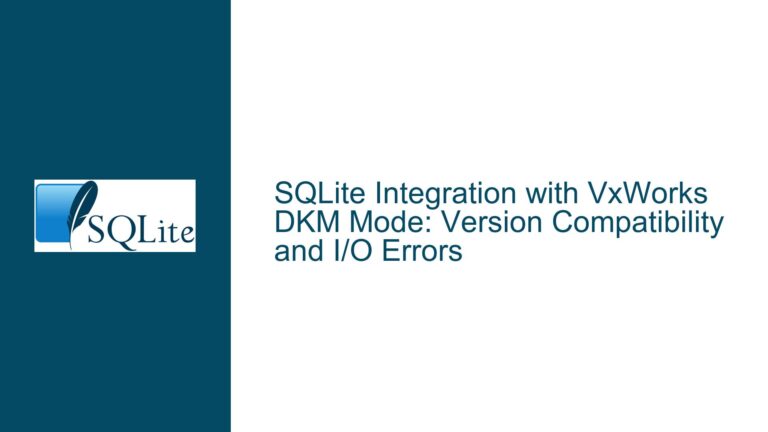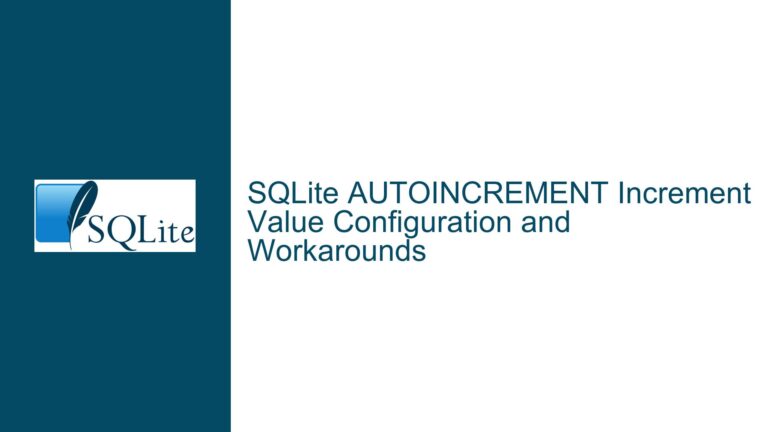Handling Negative Trip Durations in SQLite Queries
Issue Overview: Miscalculating Time Intervals Due to Date Order Assumptions When working with time-based data in SQLite, a common requirement is to calculate the duration between two timestamps, such as the difference between the start and end times of a trip. The core challenge arises when the underlying data contains inconsistencies where the end timestamp…

